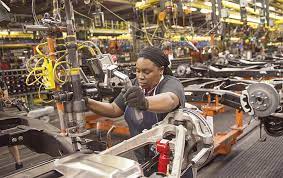The manufacturing sector in Nigeria is grappling with critical challenges as escalating energy costs threaten its survival. Rising production and logistics expenses are pushing the sector toward potential collapse.
Manufacturers have repeatedly raised alarms about the severe impact of increased energy prices, which have seen petrol prices soar by approximately 430% and electricity tariffs rise by 212% for ‘Band A’ consumers over the past year. On April 3, the Nigerian Electricity Regulatory Commission (NERC) approved a significant hike in electricity tariffs for Band A customers, who receive around 20 hours of electricity daily. The tariff increased from N66 to N225 per Kilowatt-hour (kWh), later adjusted to N209/kWh.
The Manufacturers Association of Nigeria (MAN) has labeled this tariff increase detrimental to economic growth and has initiated legal action against NERC and the electricity distribution companies (DisCos) in the Federal High Court in Lagos. The suit challenges the legality of the electricity tariff hike, citing four primary concerns:
- The assertion that the due process required by law for tariff reviews was not followed before DisCos applied to NERC for the review on July 31, 2023.
- The claim that regulatory requirements for tariff reviews were ignored prior to NERC issuing the supplementary order on April 3, 2024, and the subsequent rate adjustment on May 6, 2024.
- The argument that placing the burden of the tariff increase solely on Band “A” consumers discriminates against them, as other bands were exempted.
- The demand for compliance with administrative procedures for tariff review before implementing the April and May supplementary orders.
In response, NERC opposed the lawsuit, arguing that MAN’s case was an abuse of court processes, hastily filed without due legal procedure. Unfortunately for manufacturers, the court has struck out the case, marking a significant setback in their efforts to reverse the electricity tariff to its prior levels.
This situation highlights the urgent need for comprehensive reforms in Nigeria’s energy sector to stabilize costs and support the manufacturing industry, which plays a crucial role in the country’s economy.

